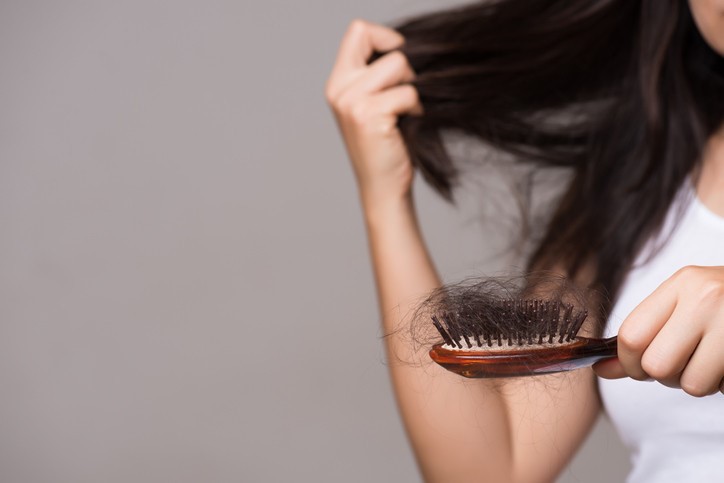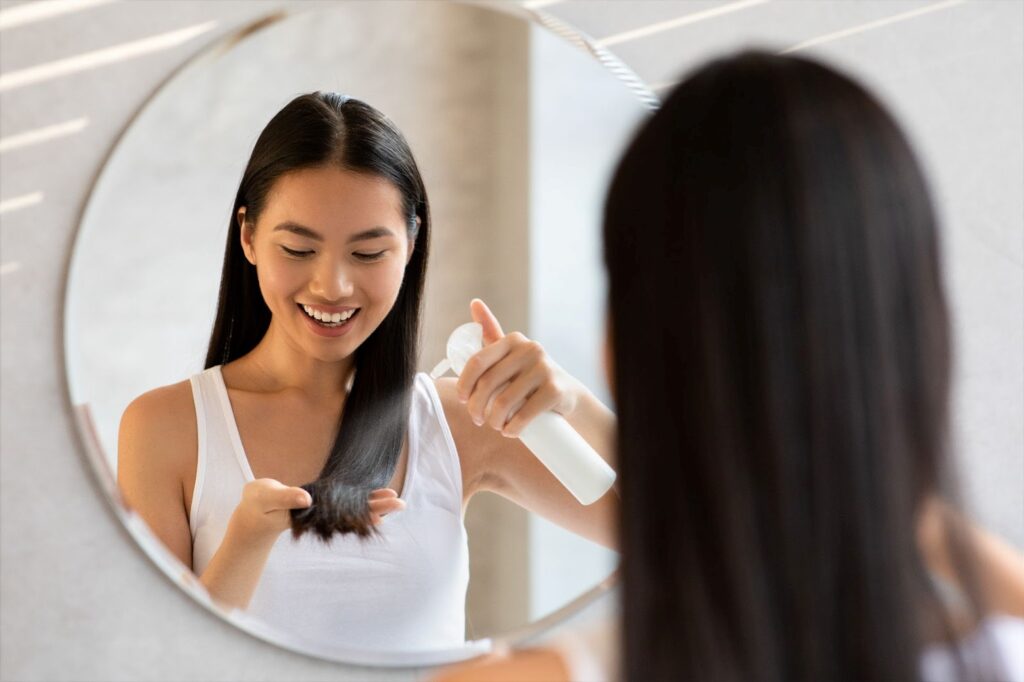A full, healthy mane of hair is often the foundation of many people’s pride and self-confidence. It might be upsetting when your hair starts to thin or fall out. Fortunately, you can take a number of steps to stop hair loss or promote hair growth.
Taking care of the root of the problem is the greatest strategy to slow or stop hair loss. Hair loss can occasionally be transient (telogen effluvium). Childbirth, surgery, or another significant stressor can all contribute to it. Hair typically grows back when the incident has passed. Other times, the root cause is more complicated.
The regular growth cycle makes it typical to lose about 100 hairs per day. However, if you’re losing more hair than usual, consult a medical professional to rule out any underlying issues and go over your options. In this article, we’ll share three main strategies to reduce hair loss:
1. Diet
You are what you eat. Therefore, to have great hair, you would have to get ample nourishment from the inside. Here are some dietary tips for great hair:
Consume herbs and greens
According to a 2018 study, a diet similar to the Mediterranean diet that includes raw vegetables and fresh herbs may lower the incidence of androgenic alopecia (male or female pattern baldness) or delay the development of it.
The best outcomes were seen when participants consume this diet more than three days a week, especially herbs like parsley, basil, and salad greens.
Eat more protein
A protein called keratin makes up the majority of hair follicles. Amino acids, which are the building blocks of protein, were one of the numerous nutritional deficits found in participants in a 2017 study of 100 adults with hair loss.
Although additional research is required, consuming a diet high in protein may help prevent hair loss, according to researchers. Recommended food to eat include:
- Nuts
- Beans and peas
- Fish
- Low-fat dairy products
- Chicken
- Turkey
- Eggs
Consume a diet rich in Vitamin A
Retinoids, which promote healthy hair development and have an impact on the hair cycle, are a component of vitamin A. However, because it is dose-dependent, too much or too little can harm your hair.
It’s doubtful that dietary sources of vitamin A will cause you to have too much of it. So, load up on foods high in vitamin A, such as spinach, sweet potatoes, and sweet peppers, to mention a few.
2. Haircare
Next to a healthy diet, healthy hair also depends on good haircare and regular maintenance. Here are some practical hair care tips for healthy hair:
Wash your hair regularly
Regular hair washing may prevent hair loss by keeping the scalp healthy and clean. It’s important to use a gentle shampoo, as hair loss could result from harsher solutions that dry out and damage the hair.
Apply coconut oil
Researchers think coconut oil may help reduce hair damage from UV radiation exposure and grooming, according to a 2018 analysis of studies.
Coconut oil contains lauric acid, which helps to bind protein in the hair to prevent breakage at the root and strand. The application of coconut oil to the scalp, too, may improve blood flow and aid in hair regrowth.
Apply olive oil
Hair can be deeply conditioned with olive oil to prevent breakage and dryness. The Mediterranean diet, which contains olive oil as a key component, may also help combat genetic hair loss.
Give your hair a natural weekly oil treatment by putting a few teaspoons of olive oil on the hair and letting it sit for 30 minutes before washing it out.
Style your hair gently and use styling products sparingly
Avoid tight braids and ponytails since they could cause excessive shedding by pulling on the hair at the root. Let your hair air dry as often as possible, as opposed to using a hairdryer, to prevent aggravating your scalp. Avoid using heat styling tools like curling or straightening irons too often because they can also break or damage the hair shaft.
On top of that, perms and hair colouring are two chemical procedures that can harm the hair and scalp. Inquire with your hairstylist about healthier and more natural styling substitutes, such as organic hair dyes and others that don’t contain ammonia, peroxide, or para-phenylenediamine (PPD).
3. Exercise & wellness
Exercising and bodywork does not only do the body and mind good. Apparently, they can also help your hair grow healthier and prevent excessive hair falls. Here are some wellness tips you can apply to prevent hair loss and boost hair growth:
Yoga
Yoga may help with stress-related hair loss. In order to stop and reduce hair loss, try these stress-relieving yoga poses:
- forward bend
- camel pose
- shoulderstand
- fish pose
- kneeling pose
- downward-facing dog
Massage & bodywork
Although we all know how fantastic it feels, can a scalp massage also promote hair growth? Possibly yes. In a small study conducted in 2016, participants reported noticing improvements after just four minutes of massage each day for 24 weeks.
Conclusion
There are so many factors affecting hair loss and growth. Sometimes it’s affected by lifestyle and sometimes the factor is genetics, or a combination of both. Whatever the root cause, it’s best to take the necessary steps to combat hair loss with the necessary precautions before it’s too late. Need help assessing your hair fall problem? Get in touch with us to book an appointment for a hair assessment today.


